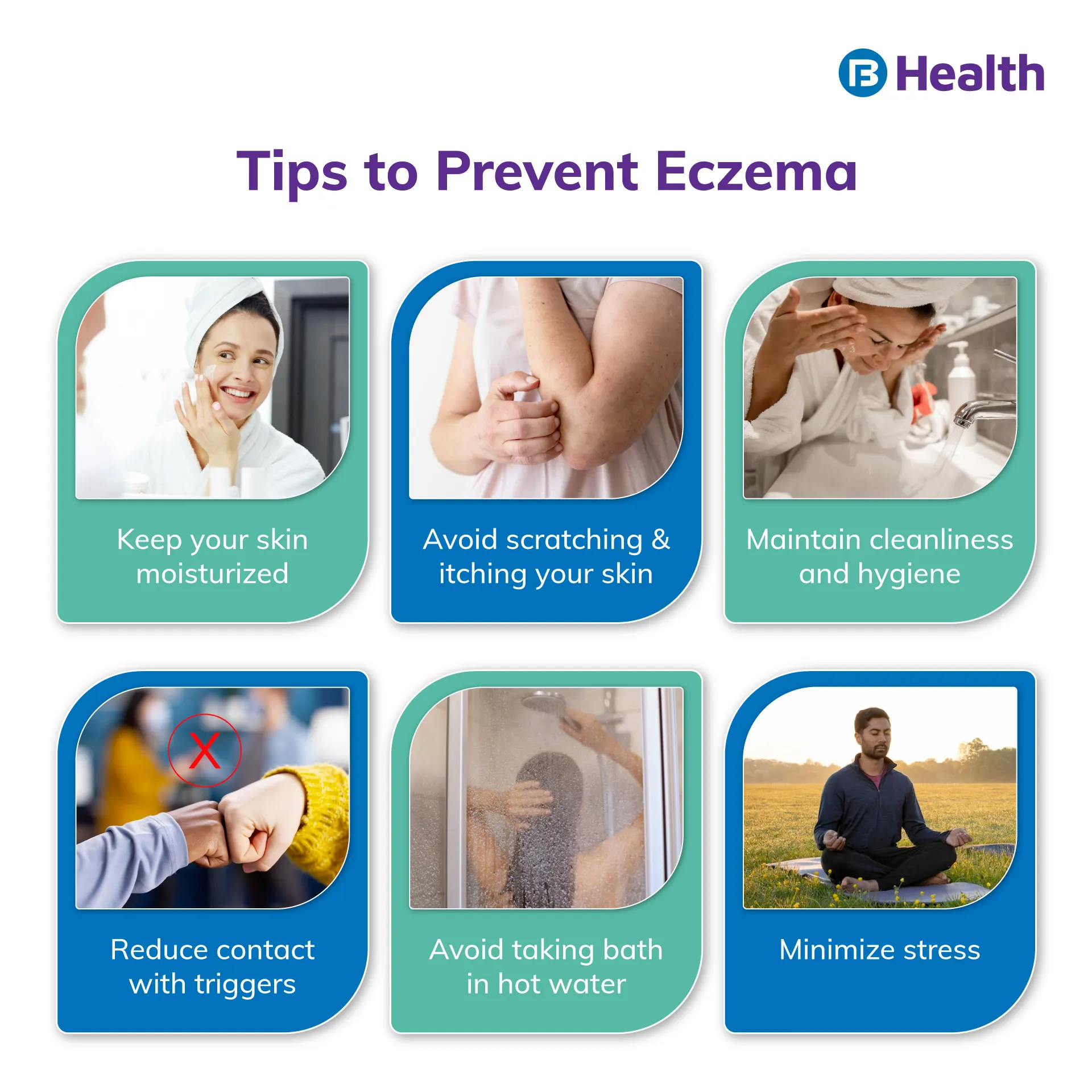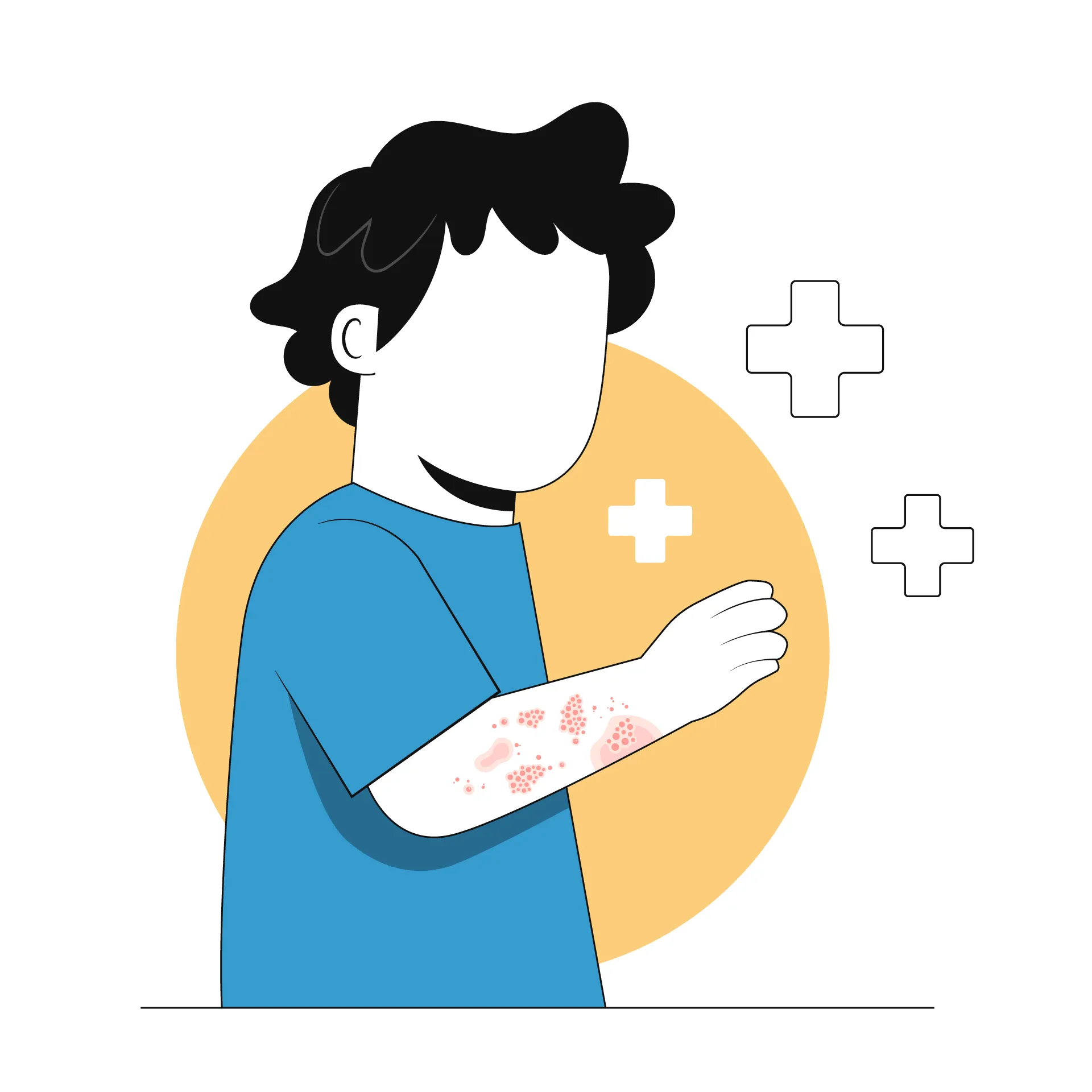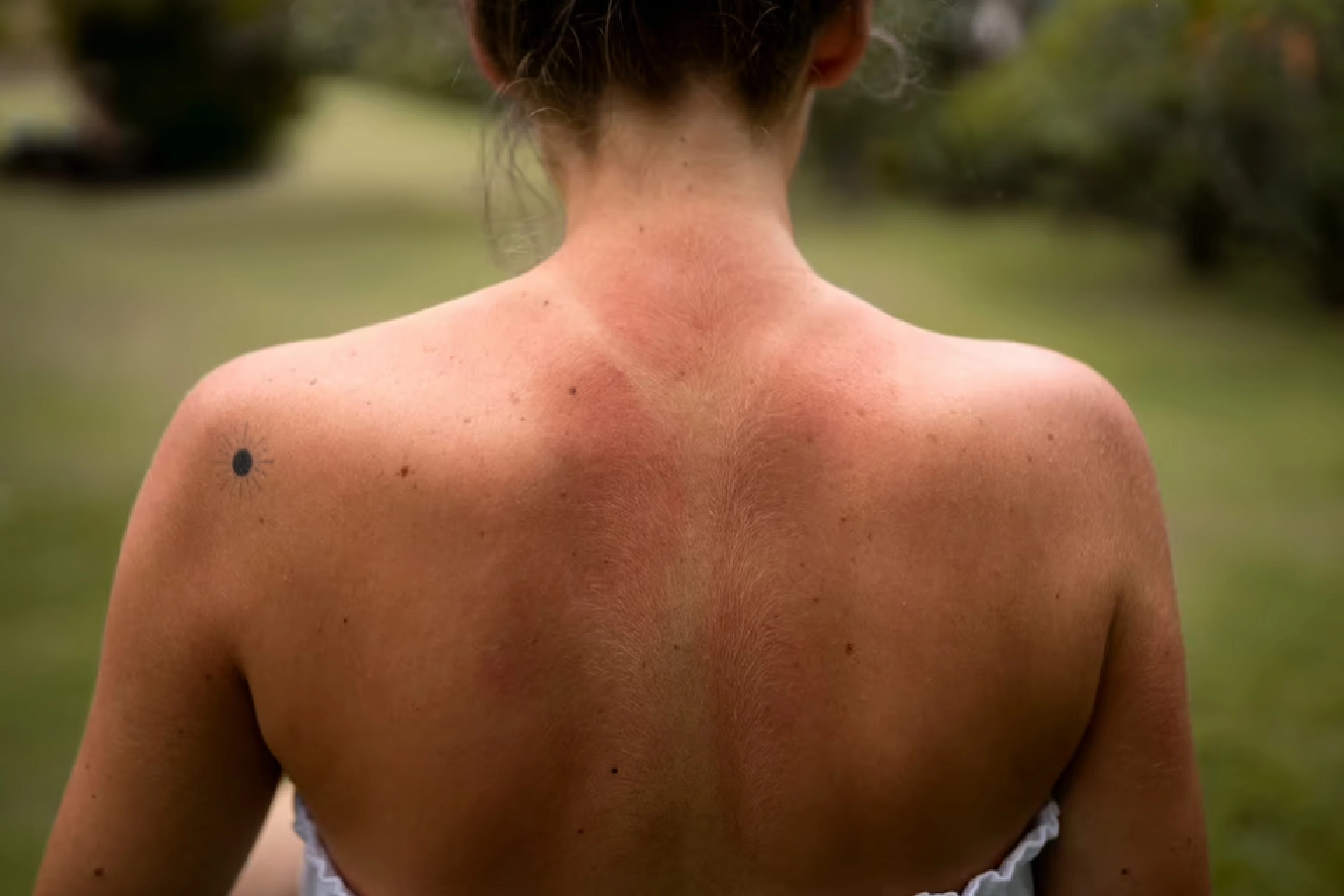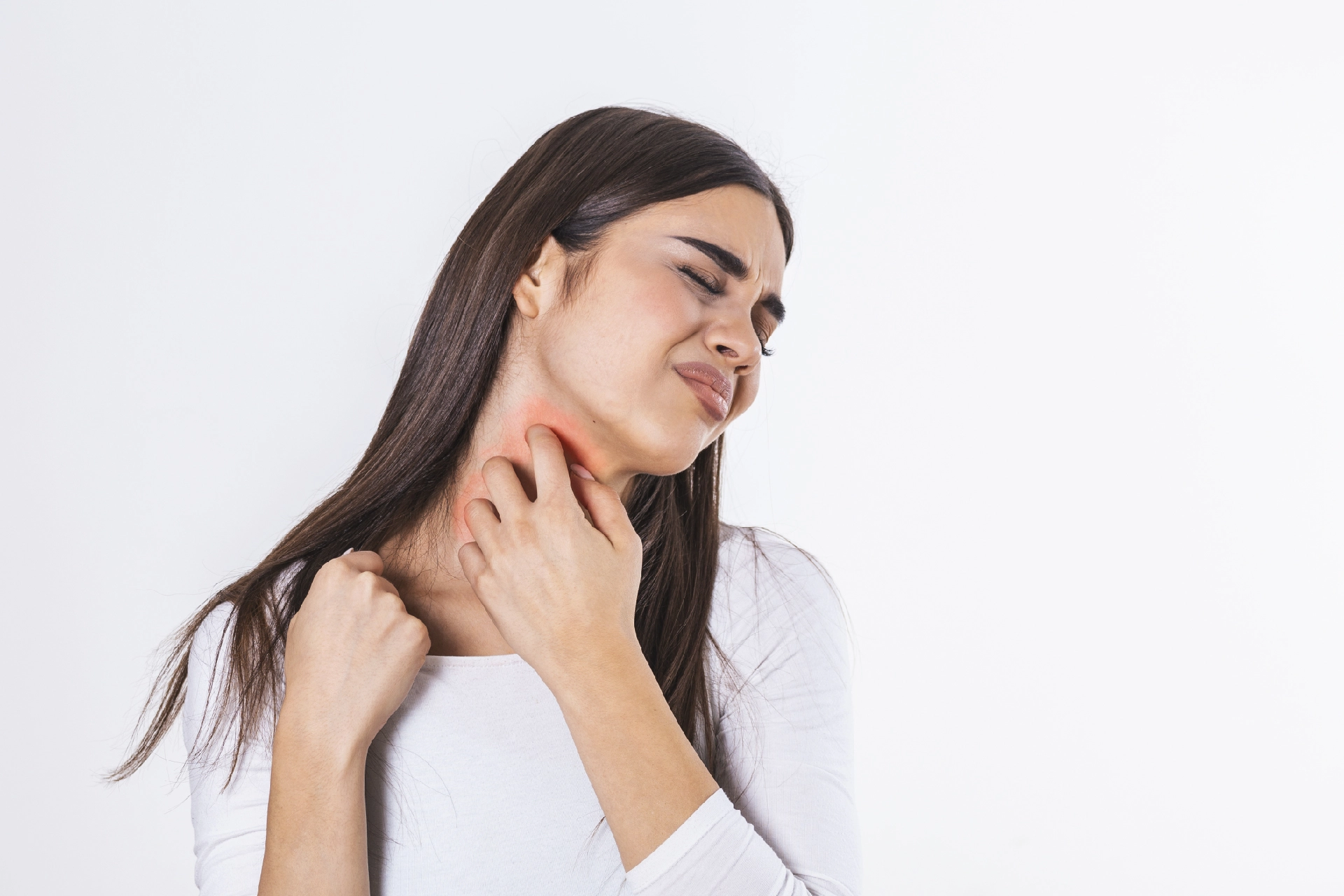Physical Medicine and Rehabilitation | 4 min read
A Guide to Eczema: Its Causes, Symptoms and Treatment?
Medically reviewed by
Table of Content
Key Takeaways
- Eczema is a condition that can cause painful rashes in skin’s top layer
- Thick scaly skin and intense itching are a few common eczema symptoms
- Eczema treatment includes taking antibiotics and antihistamines
A condition in which a few patches of your skin get itchy, inflamed or cracked is called eczema. In severe cases, it may also result in painful blisters. Most often, it is referred to as atopic dermatitis, which is one of the most common types of eczema [1]. There are various factors that can cause eczema such as specific food items and environmental triggers like pollutants, smoke and pollen.
While eczema is not contagious, your symptoms define its severity. It is known to last for a long time and you may even develop asthma or hay fever due to eczema. Though there is no permanent cure, you can avoid this condition by staying clear of irritants that can aggravate your condition. To know eczema symptoms and causes, read on.
Additional Read: Winter Rashes : How to DiagnoseEczema causes
While the definite cause of eczema remains unknown, a combination of environmental and genetic factors can cause this condition. In case either parent has it, children are likely to contract it.
These are a few environmental factors that result in eczema:
- Microorganisms such as bacteria, viruses and fungi
- Irritants like detergents, shampoos, soaps and disinfectants
- High or low temperature conditions
- Allergens like pollens, pets and dust mites
- Stress
- Hormonal fluctuations in women
- Food products like seeds, nuts, dairy products and eggs

Eczema symptoms
One of the main signs of this condition is dry and flaky skin along with itching. Skin itching causes irritation making it inflamed and rough. Eczema can affect your arms, inner elbows, scalp, cheeks and back of the knees. Few other common symptoms include:
- Thick scaly skin
- Red patches
- Excessive itching
- Presence of small bumps filled with fluid
- Skin infections
In some cases, your symptoms can worsen making it difficult for you to get a proper sleep at night. If not treated with antibiotics, these symptoms can cause infections. For mild eczema, you can avoid triggers that cause this condition and keep your skin well moisturized. Meet a doctor if your feel symptoms are not improving and you are unable to carry out your daily chores.
For babies below the age of 2 years, here are the common symptoms:
- Rashes on cheeks and scalp
- Rashes forming bubbles
- Rashes causing a stinging itch
Eczema types
There are different types of eczema that you should be aware of.
- Allergic contact dermatitis: This condition occurs when your skin comes in contact with any allergen. This allergen is identified as foreign by you immune system and so a reaction occurs. It could be any metal or even a chemical. In this condition, your skin turns red and becomes itchy. You may also observe bumpy hives on your skin.
- Atopic dermatitis: It is a common form of eczema that usually develops during your childhood. If you are suffering from this condition, you are likely to contract hay fever and asthma. Rashes may develop behind your knees or elbows. If you scratch these rashes, your skin may get infected.
- Neurodermatitis: Symptoms of this condition are similar to atopic dermatitis. If you are infected with this disorder, thick patches may form on back of your neck, legs and hands. It can cause itchy skin too. Though the exact cause of this condition is unknown, it is common in people who have psoriasis or other types of eczema.
- Stasis dermatitis: It is a condition that causes skin irritation in your lower leg. This occurs in case you have disorders in your circulatory system.
- Discoid eczema: In this type, you can see circular patches of affected skin. The infected areas are scaly and itchy and form a crust.
How to prevent Eczema
In children above 2 years of age, these are some of the common symptoms:
- Bumpy rashes
- Rashes appearing behind knees
- Presence of rashes on ankles, wrists and neck
- Thickening of skin that can result in a permanent itch
Eczema treatment and diagnosis
There is no test for diagnosing this condition. On explaining your symptoms to your doctor, you may have to undergo a patch test to identify the allergen that is causing skin irritation. If the condition is severe, doctors may prescribe oral medications. You can apply certain creams and ointments to ease your symptoms. Doctors may also prescribe specific antibiotics and antihistamines for treating eczema [2].
As the diagnosis and treatment of this condition takes time, take precautionary measures and protect yourself from eczema. In case you notice eczema on face or any rashes in skin’s top layers, be sure to consult a dermatologist. You can talk to top derma specialists on Bajaj Finserv Health. Book an online consultation without any delay and relieve yourself from skin rashes!
References
- https://medlineplus.gov/eczema.html
- https://onlinelibrary.wiley.com/doi/abs/10.1002/msj.20289
Disclaimer
Please note that this article is solely meant for informational purposes and Bajaj Finserv Health Limited (“BFHL”) does not shoulder any responsibility of the views/advice/information expressed/given by the writer/reviewer/originator. This article should not be considered as a substitute for any medical advice, diagnosis or treatment. Always consult with your trusted physician/qualified healthcare professional to evaluate your medical condition. The above article has been reviewed by a qualified doctor and BFHL is not responsible for any damages for any information or services provided by any third party.






